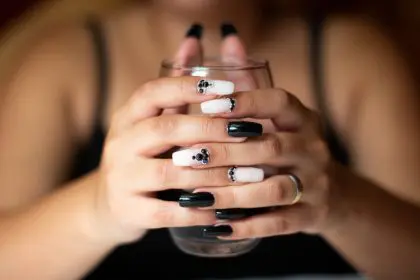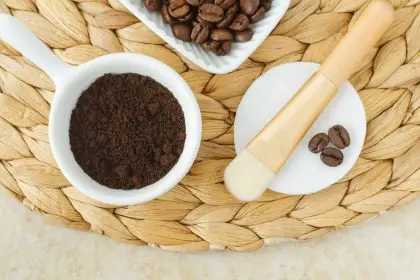You’ve tried every skincare routine, eliminated dairy, switched pillowcases religiously, and yet those stubborn breakouts along your jawline keep appearing like clockwork. What if the real culprit isn’t what you’re putting on your face, but what you’re doing with your jaw muscles every single day without even realizing it?
The connection between jaw tension and acne is one of the most overlooked relationships in skincare, yet it affects millions of people who clench, grind, or hold tension in their jaw muscles. Your facial muscles are intimately connected to your skin’s health through blood flow, lymphatic drainage, and hormone regulation in ways that most people never consider.
That persistent acne along your jawline, chin, and lower cheeks might not be hormonal or dietary at all. It could be your stressed-out jaw muscles creating the perfect conditions for inflammation and bacterial growth in the very areas where you hold the most physical tension.
Jaw clenching restricts blood flow to your skin
When you clench your jaw, whether from stress, concentration, or unconscious habit, you’re creating sustained muscle tension that restricts blood flow to the surrounding facial tissues. This reduced circulation means your skin cells aren’t getting the oxygen and nutrients they need for healthy function and repair.
Poor blood circulation in the jaw area also impairs your skin’s ability to remove waste products and toxins from cellular metabolism. When these metabolic byproducts accumulate in your tissues, they create inflammatory conditions that make your skin more prone to breakouts and slower to heal from existing blemishes.
The masseter muscles, which control jaw movement, are some of the strongest muscles in your body. When they’re chronically tight, they compress blood vessels and restrict the normal flow of nutrients and oxygen to your skin. This creates a cascade of problems that directly contribute to acne formation.
Chronic muscle tension also affects the tiny capillaries that feed your skin cells. These delicate blood vessels become compressed under the pressure of tight jaw muscles, creating areas of poor circulation that become breeding grounds for the bacteria that cause acne.
Lymphatic drainage gets blocked by tight facial muscles
Your lymphatic system is responsible for removing toxins, excess fluids, and inflammatory compounds from your facial tissues. When your jaw muscles are chronically tense, they interfere with the normal flow of lymphatic fluid, causing these waste products to accumulate in your skin.
Blocked lymphatic drainage creates puffiness and swelling in your facial tissues, but it also creates stagnant conditions where bacteria can thrive. The areas around your jawline and chin are particularly susceptible because they rely heavily on muscle movement to pump lymphatic fluid.
When lymphatic flow is impaired, your skin can’t effectively clear away the dead skin cells, excess oil, and bacterial toxins that contribute to acne formation. These substances accumulate in your pores, creating the perfect environment for inflammatory breakouts.
The lymph nodes located near your jaw and neck can also become congested when facial muscles are chronically tight. This congestion further impairs your body’s ability to clear inflammatory compounds from your facial tissues, perpetuating the cycle of acne and skin problems.
Muscle tension triggers stress hormone production
Chronic jaw tension doesn’t just affect local blood flow and lymphatic drainage. It also sends signals to your nervous system that trigger the release of stress hormones like cortisol, which directly contribute to acne formation through multiple pathways.
Elevated cortisol levels increase oil production in your sebaceous glands, particularly in the areas around your jaw and chin where stress-related breakouts commonly occur. This excess oil production creates the perfect conditions for pore blockages and bacterial overgrowth.
Stress hormones also suppress your immune system’s ability to fight the bacteria that cause acne. When your jaw muscles are sending constant tension signals to your brain, your body’s natural defenses against skin infections become less effective.
The connection between physical tension and emotional stress creates a feedback loop where jaw clenching increases stress hormones, which increase acne, which increases stress about your appearance, leading to more jaw clenching and muscle tension.
Teeth grinding and jaw positioning affect skin health
Bruxism, or teeth grinding, creates intense pressure and friction in your jaw muscles that can persist for hours after the grinding stops. This sustained muscle activation creates inflammation that extends beyond your jaw joint into the surrounding facial tissues and skin.
The positioning of your jaw throughout the day also affects skin health in subtle but important ways. Forward head posture from computer work or phone use changes the resting position of your jaw, creating chronic low-level muscle tension that interferes with normal circulation and lymphatic flow.
Sleep bruxism is particularly problematic because it occurs during the hours when your skin should be repairing and regenerating. The muscle tension and stress hormone release from nighttime grinding can directly interfere with your skin’s natural healing processes.
Many people who grind their teeth also sleep in positions that put additional pressure on their jaw and face, creating mechanical stress on the skin that can contribute to breakouts and delayed healing of existing blemishes.
The jaw-acne connection varies by individual anatomy
Not everyone who clenches their jaw will develop acne, and the pattern of breakouts varies significantly based on individual facial anatomy and muscle tension patterns. Some people develop acne along the jawline, while others see breakouts on their chin or lower cheeks.
The thickness and sensitivity of your facial skin also influences how much jaw tension affects your complexion. People with thinner skin or more sensitive complexions tend to show the effects of muscle tension more readily than those with thicker, more resilient skin.
Your individual stress response patterns also play a role in how jaw tension affects your skin. Some people respond to stress primarily through muscle tension, while others experience more hormonal or digestive responses that affect their skin differently.
The location and intensity of your jaw tension also determines which areas of your face are most affected. People who clench primarily on one side often develop asymmetrical acne patterns that mirror their muscle tension patterns.
Breathing patterns compound the jaw-acne relationship
Shallow breathing, which often accompanies jaw tension and stress, reduces oxygen delivery to your facial tissues and can worsen the circulation problems that contribute to acne. When you’re stressed and clenching your jaw, you’re also likely breathing in a way that doesn’t support healthy skin function.
Mouth breathing, whether from nasal congestion or habit, can also contribute to jaw tension and skin problems. Breathing through your mouth changes the resting position of your jaw and can dry out your oral tissues, leading to compensatory behaviors that increase muscle tension.
The relationship between breathing, jaw position, and facial muscle tension creates complex interactions that affect skin health in ways that aren’t immediately obvious but can have significant cumulative effects over time.
Learning to breathe deeply and maintain proper jaw position can help break the cycle of tension and inflammation that contributes to stress-related acne patterns.
Breaking the jaw tension-acne cycle
The good news is that addressing jaw tension can often lead to significant improvements in acne, especially for breakouts that occur along the jawline and chin. Simple awareness of your jaw position throughout the day can be the first step in reducing chronic muscle tension.
Gentle jaw massage using your fingertips can help improve circulation and lymphatic drainage in the affected areas. Focus on the masseter muscles along your jawline and the temporalis muscles at your temples, using circular motions with light to moderate pressure.
Stress management techniques like meditation, deep breathing exercises, and progressive muscle relaxation can help reduce the overall tension that contributes to jaw clenching. Even a few minutes of conscious relaxation can help reset your facial muscle patterns.
If you grind your teeth at night, a properly fitted night guard can protect your teeth while also reducing the muscle tension that affects your skin. Work with a dentist who understands the connection between jaw function and overall health.
Heat therapy using warm compresses on your jaw muscles can help improve circulation and reduce the chronic tension that contributes to skin problems. Apply warmth for 10-15 minutes while consciously relaxing your facial muscles.
Understanding the connection between jaw tension and acne empowers you to address breakouts from a completely different angle, potentially solving skin problems that haven’t responded to traditional skincare approaches.

















